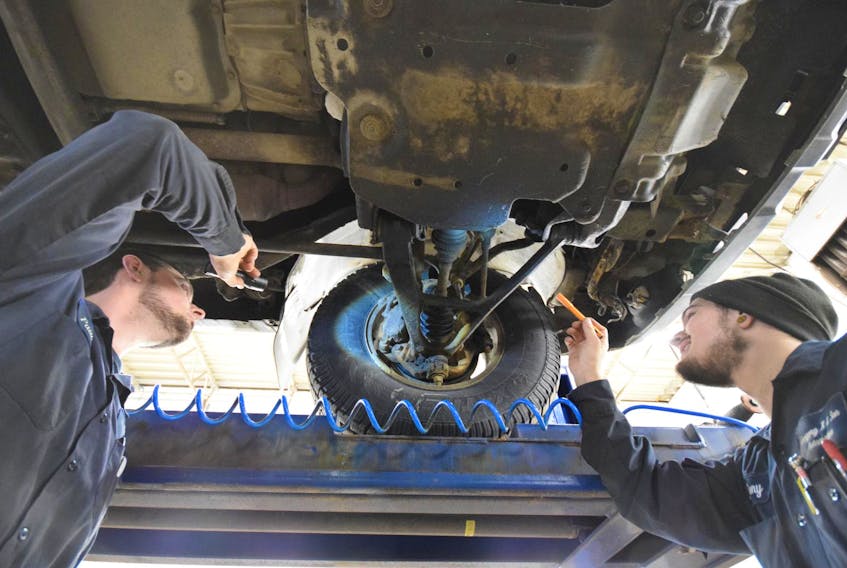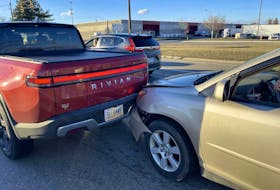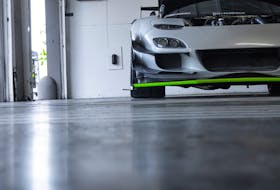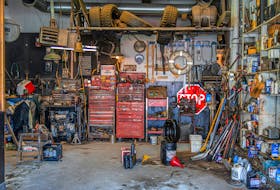Minor problem? Serious safety hazard? Play it safe with concerning sounds this summer travel season.
Whether you’ve been driving a trusty pickup truck for a decade, or a newer small car for just a few months, it’s important to remember that you’ve got a special connection with your vehicle that can be a very powerful diagnostic tool.
The connection in question is born of your experience as a driver. Specifically, it relates to your ability to (hopefully) pick up on unusual sounds or sensations as you drive whatever you drive, wherever you drive it.
On one level or another, every driver has some ability to detect when something doesn’t seem right with their vehicle. Usually, this occurs when something feels — or sounds — out of place.
Is your car or truck making a noise you’ve never heard before? Do you feel or hear something unusual as you cruise, steer, travel over bumps, or brake? Does something seem to be out of whack, but you can’t put your finger on it?
You don’t need to be a mechanic to notice something unusual about your vehicle — though you’re best to visit a mechanic, pronto, if something doesn’t quite seem right.
After all, the summer family travel season is here — and it never hurts to play it safe. If something seems out of the ordinary as you drive, it probably is. Taking corrective action as soon as possible, ideally before a summer family road trip, can prevent a serious issue or accident.
Below? We’ll look at some unusual sounds and sensations you might detect from your vehicle, and how minor — or serious — they could be. There’s just one takeaway from the information presented further down the page: If you’re in doubt, get it checked out professionally for maximum peace of mind.
Concern: High-pitched squealing sound while vehicle is in motion, likely originating near one (or more) wheels. May be more obvious during light to moderate braking, or at certain speeds.
Could be minor:
If you hear a squeal that’s not coming from under the hood, and seems to be more obvious at certain speeds, think ‘brakes.’
Best case scenario?
You’ve got some sand, dirt, or a small rock wedged between your brake rotor and the steel splash-shield behind it. Here, squealing is likely as the offending debris contacts the steel brake rotor, which spins while you’re driving.
The fix?
In a few minutes, a technician can remove the debris, assess the brakes for other problems, and re-check for the sound on a test drive.
In some situations, squealing sounds like this may be evidence of a braking system component that’s in need of a little lubrication. If so, the fix is likely quick and cheap.
Could be major:
Brakes sometimes squeal for another important reason, too — to tell you that they’re worn out.
Brakes wear out a little, every time you use them, until they need to be replaced. That’s why most braking systems are designed with special provisions to emit an annoying squealing/squeaking sound when they’re worn out. This is your braking system telling you that you need a brake job, soon.
Ignore the warning sounds, and you could be driving on badly-worn brakes, which is a hazard for you and your fellow motorists — as well as your family, pets, or anyone else you’ve got on board.
Concern: Thumping or clunking sound, metal-on-metal in nature, from deep beneath the vehicle. Often or always present when hitting a bump or pothole.
Could be minor:
There are many things that could cause an unusual clunk or thump from beneath your ride as it travels over bumpy roads. Some of these are more minor — like a loose spare tire mount, a loose mud-flap contacting the vehicle body, or an emergency jack that’s become detached, and is smashing around within the vehicle’s trunk or cargo hold.
Could be major:
Some thumps and clunks are more serious, and could indicate wear, sometimes excessive, to one or more suspension components. Left unattended, the worn-out component(s) in question can cause additional damage to other components and parts nearby.
Suspension wear of this nature can negatively affect the safety, handling, and even fuel mileage of your vehicle. Add a trailer and full complement of passengers and gear to the mix, and suspension wear accelerates further, increasing the safety risk. Ignoring a concerning thump or clunk of this nature can cause a mechanical failure, resulting in a serious accident.
In the event that the clunk or thump is accompanied by a banging sensation felt through the vehicle floor or steering, immediate and professional attention is highly advised.
Concern: A roaring, groaning or grinding sound, likely dull and continual, and possibly more obvious between a certain (relatively narrow) range of speeds. A dull and rhythmic pulsing sound, perhaps like that of a helicopter off in the distance, may be observed, too — possibly accompanied by a dull vibration through the vehicle floor or steering.
Could be minor:
Dull and relatively-continuous sounds like this can have numerous causes. Many of them indicate the need for some professional attention to your vehicle —perhaps even more so if the sound and/or vibration is consistent and continual, perhaps between 40 and 80 kilometres an hour.
More minor causes of this sort of sound and sensation combination include out-of-balance wheels, worn CV axle joints, or a bad bearing in the vehicle’s driveline.
Could be major:
More serious causes of a dull and largely-continuous roar and/or vibration include worn wheel-bearings, serious driveline component problems, or even a severe and urgent problem with your braking system, like a cracked or broken brake pad.
Each of these conditions, left unresolved, can result in a serious accident. For instance, a severely-worn wheel-bearing can result in a total loss of control, if it fails before being replaced. A fractured brake pad, further, can fail with little notice, dramatically reducing your vehicle’s stopping power and control.
RELATED:









